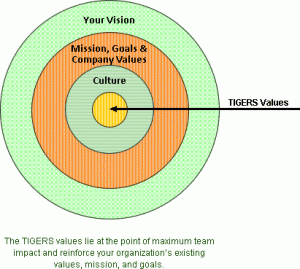
According to Gallup research and America’s Coming Workplace: Home Alone, 43 percent of American employees worked from home in some capacity in 2016. Thirty-one percent spent 80 percent or more of their time away from the office. This is a significant increase from 2012 percentages, with 39 percent of employees working from home in some capacity and just 24 percent working 80 percent or more at home.Clearly the option to work remotely and telecommute is catching on.
Telecommuting is also increasing across the board. Most studied industries offer remote working opportunities for employees.
However, telecommuting is not for everyone. Teamwork, collaboration and communication issues are cited as reasons for companies to scale back on remote working opportunities. If telecommuting seems like something you’d like to offer for your employees, there are some strategies that you can implement to ensure your endeavor is successful for both the company and your employees.
Team building tips for offering telecommuting in your business
Many employees are looking for opportunities to work from home. They are satisfied with requesting full-time or part time telecommuting. The option, however, may not be right for every employer or employee. Consider the following team building tips to make telecommuting a successful option for your team members.
Encourage team members to create a functioning work space to telecommute.
One of the best ways to successfully work from home is by creating a functioning work space. This includes carving out a space that is only dedicated to work.
If you have a whole room to spare, create an in-home office with all of the files, supplies and reference materials you need. If a whole room isn’t available, find an out-of-the-way area where you can set up a desk away from distractions like television or even your bed.
By creating a designated space, you can mentally prepare yourself to “go to work” without being distracted by all of the household responsibilities you also need to complete. A designated space also helps you to stay organized, as all of your work and supplies should be located in the one space, rather than deposited throughout the house. Make a space in your house as much like work as possible to minimize distractions and increase productivity.
If small children are at home, making sure you have a sound proof way to speak with customers is also required. This might mean that daycare will be required.
To telecommute be intentional
Communication with remote workers, leaders and other team members can become a problem if leaders aren’t intentional with their team member’s telecommute goals. , Daily meetings with remote workers aren’t necessarily required. But periodic face-to-face time is. Also use time wisely to consistently check in with remote workers. Examples include phone calls, emails, instant messages or any other method of communication at their disposal.
By doing so, leaders ensure that they are building a trusting relationship with their team members. And, team members also need to have some sense of independence while still being held accountable. Through a trusting relationship, leaders can determine their team members’ needs while getting to know them and caring about them on a personal level. By viewing their team members as individuals first and being intentional with communication efforts, leaders can create a positive working relationship among all team members including those who telecommute.
Participate in continuous training.
Continuous training is important for all leaders. It may be even more important for leaders who manage teams of remote workers because working environments and employee and leader expectations are constantly changing. Training opportunities, like the TIGERS Manager as Facilitator Training, give leaders the skills they need to improve cooperation among employees and departments for high performance results. Managers who are good facilitators bring people together to work toward solutions. As a result, groups accomplish more with high levels of commitment and accountability.
Facilitating group dynamics the right way creates buy-in and makes group process bearable by everyone. This encourages all team members to work together closely and effectively communicate with one another, regardless of their physical location and telecommute status.
Review
Team member telecommuting has been steadily increasing in recent years. Many top candidates are specifically looking for companies that offer flexible working requirements. A remote workforce isn’t for every company. However, with the right team building tips and tools you may find that offering telecommute opportunities improves productivity and morale.
Some strategies for making the telecommute work for your company include:
- Encouraging team members to create a functioning and dedicated work space in their homes to reduce distractions;
- Being intentional with your communication practices with all team members, regardless of their physical location; and,
- Participating in continuous training to build strong, effective teams.
With these, and other team building tips, you might find that a remote workforce is the right move for your company.
Care to dig deeper into the conversation of the telecommute?
Consider the following resources for more information:
· America’s Coming Workplace: Home Alone
· How To Succeed At Working From Home ·
Can You Manage Employees You Rarely See?
TIGERS Manager as Facilitator Training
Copyright, TIGERS Success Series, Inc. by Dianne Crampton
About TIGERS Success Series, Inc.

We specialize in training your managers in group facilitation methods that build workforce cooperation and high performance team dynamics. Scaled to grow as your organization and leadership performance grows, our proprietary Team Behavior Profile and Management training workshops are based on the six principles we have found to be the right mix to make this happen.
The TIGERS 6 Principles are Trust, Interdependence, Genuineness, Empathy, Risk and Success. Born from our many years of business, psychology, and educational group dynamic research, and subsequent four years of independent evaluation, we instill and sustain behaviors that improve work group performance and talent retention for measurable ROI.
TIGERS has served committed leaders who desire enhanced cooperation among departments, teams, managers and individual employees. This heightened level of cooperation leads to improved revenue, purpose, commitment and impact. Employees quit companies because they don’t get along with leaders and co-workers. Work culture refinement and behaviors that build strong relationships erase this trend remarkably fast.
For more information or to request a presentation to your group or association, call 1+541-385-7465 or visit https://corevalues.com .